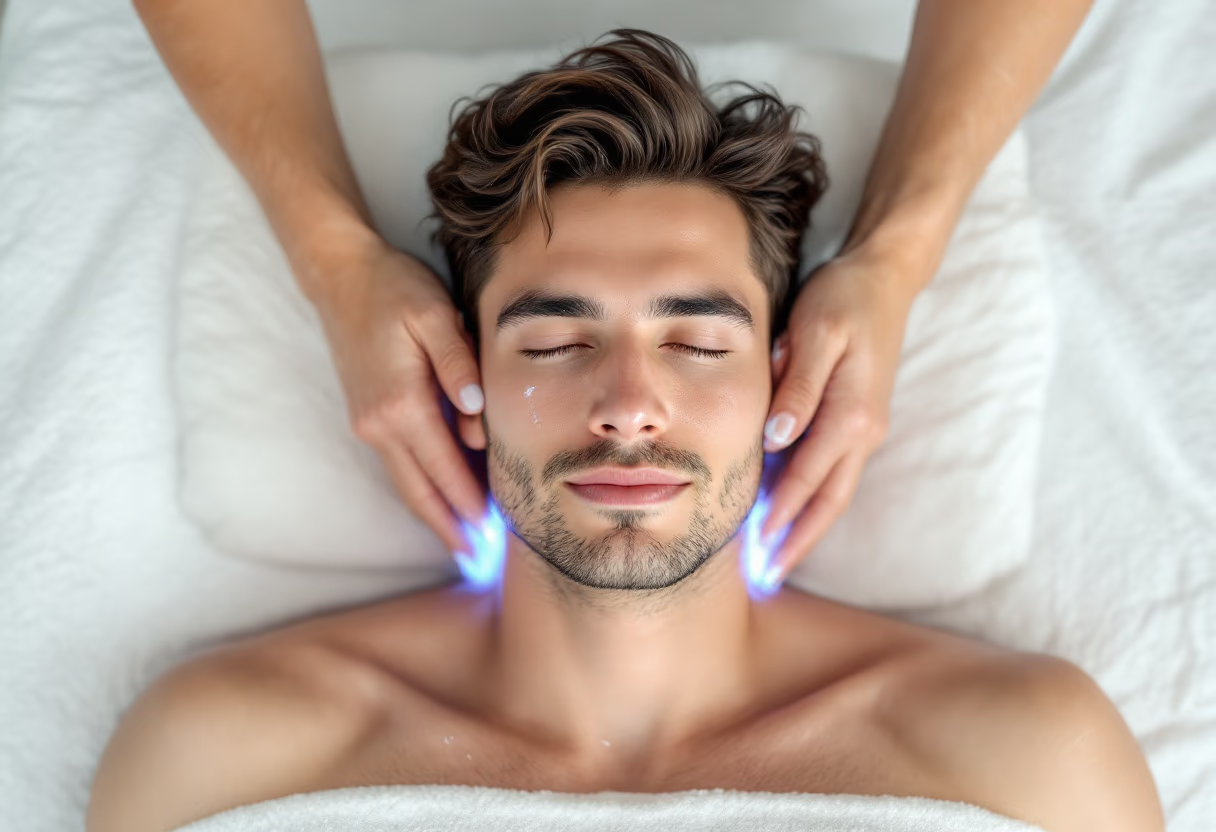
20 Years of Producing the Highest Quality, Most Reliable, and Effective LED mask.
Discover 7 powerful Facebook ad strategies—from retargeting to before-&-after visuals—to grow your light-therapy brand, boost leads, and build awareness. Learn how to optimize creatives, audience segments, and ad frequency to get real results

As a company or private healthcare practitioner, you have probably heard about the benefits of red light therapy and may be considering an investment in light therapy devices. Offering quality products is only half the story; you also need a plan to promote your light therapy brand, especially on social media.
The global pandemic disrupted the health and wellness industry and forced brands to rethink advertising. Tactics that once worked can lose impact, so adapting is essential. Many companies now rely on Facebook Ads to boost visibility and capture leads.
Why Facebook?
With roughly 1.62 billion daily users and an average cost-per-click near $1.72 across industries, Facebook offers a broad yet cost-effective audience. The platform also supports clear calls-to-action, allowing viewers to respond immediately. In short, Facebook can give your light therapy products wide exposure and steady lead flow.
7 Best Practices to Promote Your Brand on Facebook
Numbers are helpful, but execution matters. The following tips can raise awareness and generate leads for your light therapy brand.
Use GIFs and videos
Short clips or GIFs stop the scroll and fit shrinking attention spans. A brief animation that highlights light therapy for psoriasis, followed by a call-to-action, can entice viewers to click for details.
Retarget your audience the right way
Website visitors are more likely to return when reminded. Retargeting ads can raise conversion rates by up to 150%, according to 99Firms.
Keep an eye on ad frequency
High frequency breeds fatigue; monitor impressions and refresh creative when engagement drops.
Highlight before-and-after visuals responsibly
Authentic images can illustrate potential benefits, but avoid implying guaranteed results. Pair visuals with balanced copy that notes individual outcomes may vary.
Segment audiences by intent
Separate campaigns for new prospects, past purchasers, and newsletter subscribers let you tailor messaging and bids.
Leverage user-generated content
Re-posting client photos or testimonials (with permission) adds credibility and keeps content costs low.
Test and tweak weekly
Small changes to headlines, images, or calls-to-action can swing performance. Run A/B tests, pause under-performers, and scale winners gradually.
WHO: Health topics PubMed search U.S. FDA
Keep an eye on “ad frequency,” the average number of times one user sees your ad. If the same person is served the ad too often, fatigue sets in, the chance of a report increases, and your relevance score drops. Aim to keep frequency ≤ 2; once it climbs toward 3–4, performance usually declines.
Research your competition
Check the Facebook Ad Library to view competitors’ active and past ads. Comparing creative, copy, and run dates can give you benchmarks and ideas for your own campaigns.
Test different audiences
Build variants that target interests or demographics outside your assumed core group. Run them simultaneously, then let the data show which segments convert; you may uncover profitable audiences you had overlooked.
Re-engage your warm audience
People who already follow your page or subscribe to your newsletter (“warm audience”) generally cost less to convert and generate higher engagement. Prioritize them before spending heavily on cold prospects; strong social proof from warm users can later help attract new ones.
Gain attention with free offers
Limited-time discounts, sample-sized products, or downloadable guides can lower the barrier to entry and grow your lead list. Make sure the offer is closely tied to the product you ultimately want people to buy.
These principles apply whether you market consumer or professional light-therapy devices. Stay informed about industry trends, test methodically, and adjust spend toward the audiences and creatives that deliver the best return.
